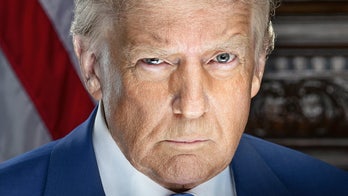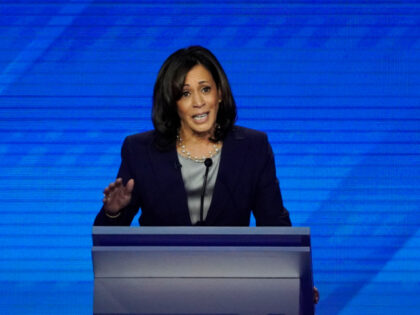
THREAD: shifting alliances
LifeLine™ Media threads use our sophisticated algorithms to construct a thread around any topic you want, providing you with a detailed timeline, analysis, and related articles.
News Timeline

— US Eases Sanctions on Syria. The Biden administration grants limited waivers to promote peace and stability, signaling a shift in Middle East policy. The move sparks mixed reactions and may impact regional alliances and global markets.

TRUMP’S Bold Return: Global Alliances Shaken
— President Donald Trump has re-entered the White House, quickly overturning Biden-era policies and pulling out of major international agreements. His actions have left global partners unsure about their standing. Allies and adversaries are closely watching how Trump’s second term will unfold on the world stage.
In his first 100 hours, Trump signed executive orders, including one labeling Mexican cartels as foreign terror organizations. Italy’s Prime Minister Giorgia Meloni met with Trump at Mar-a-Lago and attended his inauguration, supporting his push for increased NATO defense spending. Meloni is seen as a key EU contact amid fears of a potential trade war with Europe under Trump’s leadership.
Hungary’s Prime Minister Viktor Orban, a long-time ally of Trump, expressed excitement for Trump’s return to office but missed the inauguration due to scheduling conflicts. Orban sees this as an opportunity to challenge what he calls Brussels’ "left-liberal oligarchy.
Argentina’s President Javier Milei seeks stronger U.S.-Argentina relations under Trump’s presidency. At the Davos World Economic Forum, Milei hinted at leaving the Mercosur trade bloc if it means securing a new trade deal with the U.S., highlighting shifting alliances in response to Trump’s policies.

Harris’s SHIFTING Fracking Stance ALARMS Conservatives
— Co-host John Roberts aired a clip of Bernie Sanders saying Kamala Harris is being pragmatic to win the election, despite her past views. Roberts then questioned if Harris would revert to opposing fracking if elected.
Philippe Reines responded by suggesting that Sanders’ comments reflect Harris’s current stance on fracking, even though she previously opposed it. He emphasized that candidates often change their positions based on electoral needs and context.
Reines believes Harris is aligning with President Biden’s record to gain support from undecided voters. He expressed confidence in this strategy as a winning approach for the election.

— **Global Shipping Giant Alters Economic Forecast Amidst Shifting Outlook** One of the leading ocean shipping companies adjusts its global economic predictions in response to changing conditions
SHIFTING ALLIANCES: Slovakia’s Pro-Russian Frontrunner Pledges to Reverse Support for Ukraine
— Robert Fico, a former prime minister of Slovakia, is currently leading the race for the upcoming Sept. 30 election. Known for his pro-Russian and anti-American views, Fico has pledged to withdraw Slovakia’s support for Ukraine if he regains power. His party, Smer, is anticipated to triumph in the early parliamentary election. This could pose a challenge to both the European Union and NATO.
Fico’s potential comeback reflects a broader trend in Europe where populist parties skeptical of intervention in Ukraine are gaining momentum. Countries such as Germany, France, Spain and Hungary have witnessed significant backing for these parties which could sway public sentiment away from Kyiv and towards Moscow.
Fico disputes EU sanctions on Russia and doubts Ukraine’s military strength against Russian forces. He intends to leverage Slovakia’s NATO membership as a barrier against Ukraine joining the alliance. This shift could steer Slovakia off its democratic path following Hungary under Prime Minister Viktor Orban or Poland under the Law and Justice party.
Public faith in liberal democracy has seen more decline in Slovakia compared to other regions that broke free from Soviet control years ago. A recent survey disclosed that over half of Slovak respondents blame either the West or Ukraine for the war while an equal percentage perceive America as a security threat.

Video
EUROPE On EDGE: How the US Election Could Shake Global Alliances
— As Election Day nears, Europe watches the U.S. closely, expecting major impacts on international relations and economic policies. The election could redefine alliances and reshape global dynamics. Rising tensions and economic uncertainties add to Europe’s keen interest in America’s unfolding political drama.
The European Union is worried about possible changes in U.S. leadership affecting the transatlantic relationship, already strained in recent years. Leaders are cautious of differing visions from U.S. candidates on NATO, trade agreements, and climate change cooperation. Changes in U.S. foreign policy priorities could either strengthen or challenge EU strategic interests further.
Economic interests are a priority for Europe since the U.S. is a major trading partner for many European countries. Any changes in trade policy or tariffs could significantly impact economies across the continent. Europe’s energy security, linked to U.S foreign policy decisions regarding Russia and Middle Eastern countries, is another critical area under scrutiny to ensure stability amidst geopolitical shifts.
There is also concern over populism and nationalist movements gaining strength on both sides of the Atlantic influenced by U.S policies on immigration and defense issues. The election outcome might embolden similar movements within Europe, affecting its internal cohesion and policy direction significantly as Election Day approaches with Europe being more than just a spectator but an active stakeholder in these potential seismic shifts from America’s democratic process .
